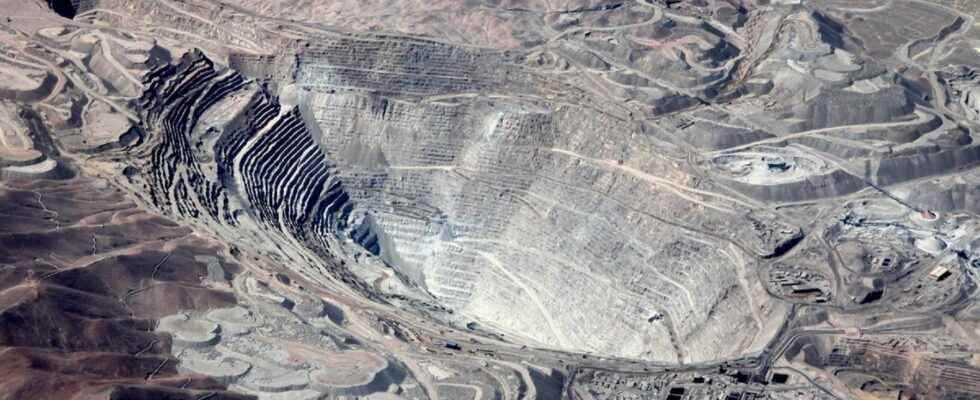Well known to scientists, a working tool for chemists, the periodic table has had a facelift at the initiative of the European Chemical Society. The purpose of this revisited painting? Alert on the state of planetary resources in the face of an increasingly greedy production of rare elements.
You may also be interested
[EN VIDÉO] Green chemistry is disrupting sectors of industry Most everyday consumer products today come from industrial chemistry. And the concept of green chemistry, tells us in video Stéphane Sarrade, director of research in chemistry and process engineering, is about to revolutionize this world that until now nothing seemed to be able to shake up.
the periodic table by Mendeleïev is a great classroom classic. This table includes all known chemical elementsclassified according to their atomic number and organized according to their electronic configuration.
Because of the information it contains, it is primarily intended for chemists. However, this table has recently been revisited by the European Society of chemistry which assigned it a new function: to inform specialists, but also the general public on the evolution of the availability of different chemical elementson their use and on the geopolitical issues of which some are the subject.
Because if the periodic table of origin brings together all the existing chemical elements, it does not represent, for example, the natural abundance of each of these elements. A key point for understanding certain current issues.
Mineral resources are not infinite
The new version of the periodic table produced by the European Chemical Society therefore shows this abundance by allocating different sizes to the hitherto uniform squares. Added a code color, which provides information on the current availability of the various elements. In red, thus appear the elements which are overused compared to their availability and about which it is necessary to fear a shortage within a hundred years. Because like the coal where the oil, some minerals are a non-renewable resource. It is urgent to realize this.
Symbol of current technology, extremely greedy in rare elements, a smart phone was drawn in the boxes of the chemical elements used for its manufacture. The problem with which humanity will be confronted in the coming decades thus jumps to the eyes : the production of electronic components, but also ofmagnetswhich is currently exploding especially with the development of renewable energies, will very quickly come up against the shortage of certain elements, such as gallium (Ga), cobalt (Co) or even arsenic (As). Others, like the tantalum (Ta), are partly exploited in conflict zones or which are characterized by difficult working conditions, with sometimes recourse to child labour. The periodic table thus raises a question of ethics and responsibility in the exploitation of this type of mineral.
Consider the problem of availability from an ethical point of view
The elements which are the subject of geopolitical issues, or even which are responsible for armed conflicts, are thus highlighted. light in this new periodic table, which continues to evolve and be revised each year. Between 2019 and 2021, the European chemical society has thus reviewed the color of the box carbon (C) which changed from all green to tricolor. This modification follows a reflection on the sustainability of the carbon resource. Because even if carbon is currently widely available, the reserves of combustible fossil fuels are in danger of being exhausted if our energy practices are not changed. Moreover, these reserves are often at the origin of conflicts, or are used to finance conflicts, as illustrated by the war in Ukraine, with the question of the importation of Russian gas.
The objective of this revisited periodic table is to draw attention to the limits of our Planet to offer us what we need, or what we think we need. It also encourages chemists and engineers to reflect on their practices. The limit of planetary resources must be taken into account at all levels and new solutions, such as recycling intensive, should be considered and strongly encouraged.
Interested in what you just read?
